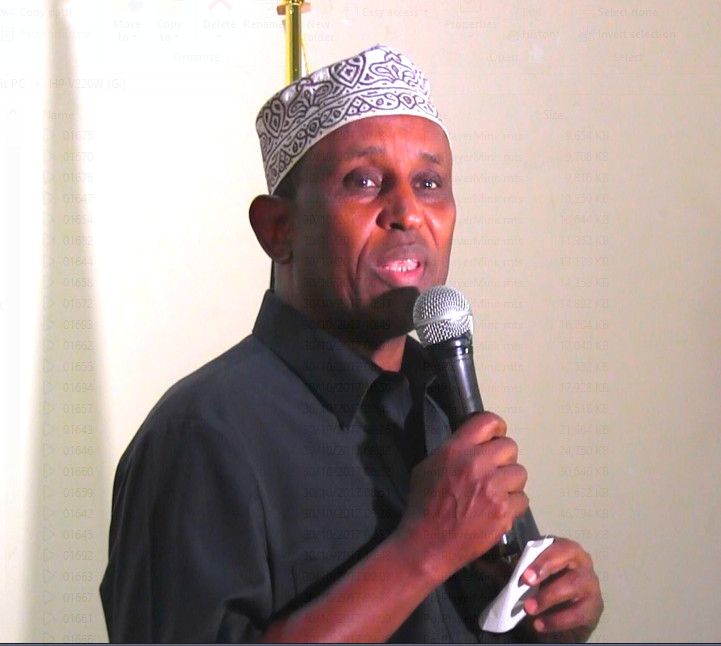Published
6 years agoon
By
Kulan Post
Your ads will be inserted here by
Easy Plugin for AdSense.
Please go to the plugin admin page to
Paste your ad code OR
Suppress this ad slot.

Garissa county governor addressing the public where he witnessed the swearing in ceremony of the county executive committees. He has been blamed by activists and opinion leaders for gender imbalance in the appointment of chief officers.
GARISSA—There has been a hot debate about gender imbalance raised by leaders and activists in Garissa over failure by the county executive to meet the third gender rule in the appointment of chief officers.
Out of 22 appointed nominees, only four are women. Wajir county has also raised concerns on this matter where out of the 25, only four are women.
Korane said that it was unacceptable for women to be locked out of leadership positions ‘simply because they are women’ despite being qualified.
Governor Ali Korane and his Wajir counterpart Mohamed Abdi have blamed clans for failing to nominate women for such positions. However activist and opinion leaders say the back stops with the governor.
Wajir governor in a bid to justify why he did not meet the third gender rule said it was unfortunate to see that majority of people do not accept women to represent their interests irrespective of their qualifications or expertise.
Womankind director Abdullahi Mohamed, said that it was unfortunate to see women still being judged by their gender and not by capabilities. He insisted that the constitution mandated governors with the appointment of chief officers.
“The governors cannot continue pretending to play to public gallery when they very well know that the back stops with them and that they have a constitutional requirement that they are supposed to meet,”Abdullahi noted.
The Somali communities are patriarchal society with deep- rooted cultural practices who are yet to fully embrace women leadership. Activist and opinion leaders have come out to oppose this and believe its time women had a place in leadership.


Ignoring Tragedies: The Perpetual Suffering of Garissa


Unexploded colonial-era bomb discovered in Gar


Resign for poor performance, MP tells CS for Transport over Garissa boat tragedy


Five people killed in Elwak town in a blast attack. The explosives were hidden on a donkey cart


OPINION: Reports of Toxic Waste Dumping in Northern Kenya Calls for Thorough Investigation


Wajir gang-rape: Police in pursuit of 5 suspects, one in custody
